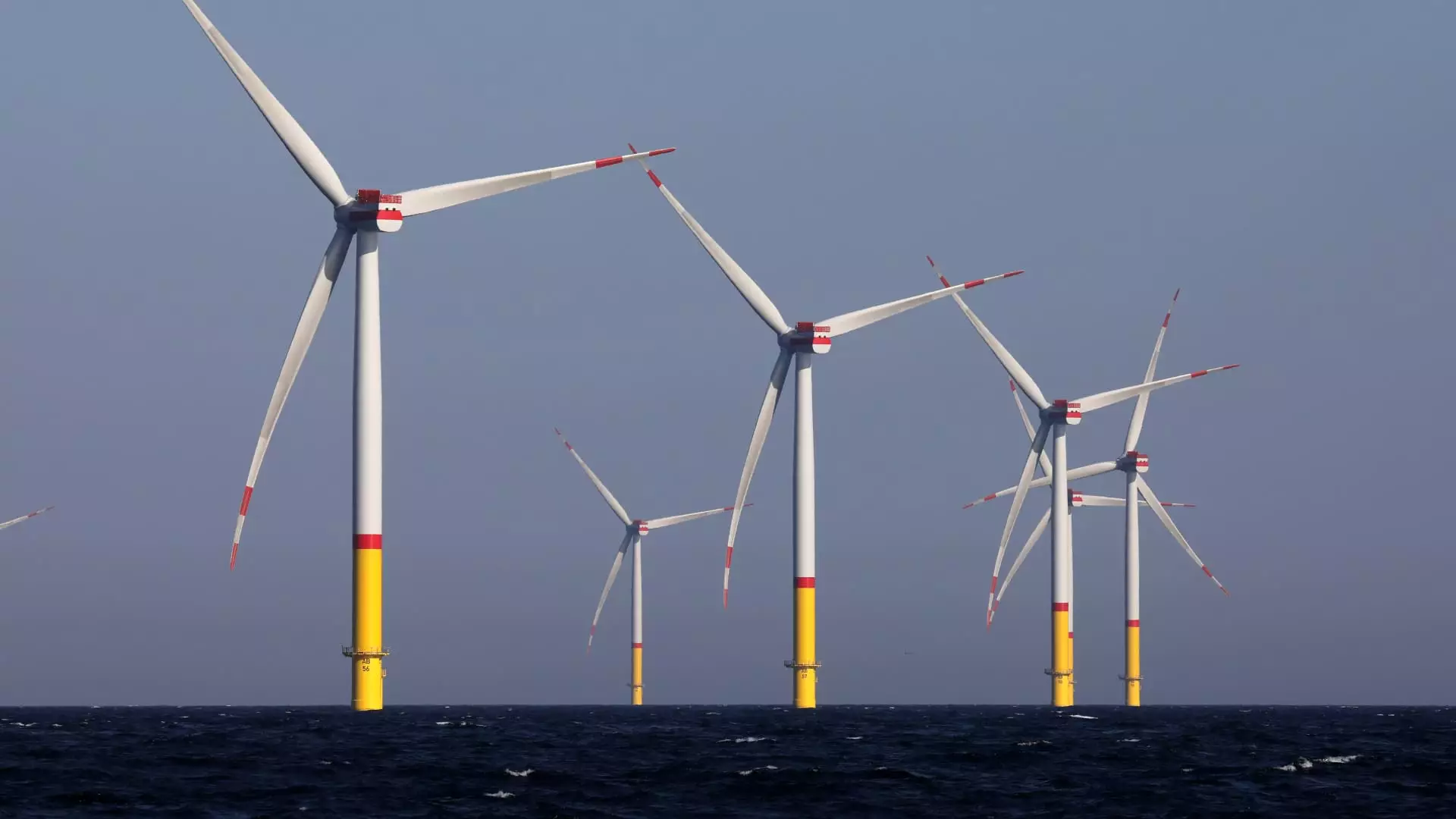The recent resurrection of the Empire Wind 1 project by Equinor illuminates a pivotal moment in the intersection of renewable energy and political power. Offshore wind energy has the potential to not only reshape New York’s energy landscape but also serve as a litmus test for the Biden administration’s commitment to combating climate change. This ambitious venture is more than a mere construction project; it symbolizes the clash of ideologies surrounding energy production in America. The lifting of the stop-work order initiated by a Trump appointee serves as a critical reminder that progress in renewable energy can be contingent upon political winds that often shift dramatically.
Equinor’s decision to resume construction signals an encouraging pivot towards clean energy. Yet, it also raises questions about the reliability of support from federal authorities. For all the talk about the urgent need for a sustainable future, the halting of this project underlines the fragility of momentum in energy policy as long as political ideologies remain in flux. The state’s resolve to push forward with the project should be commended, but one cannot overlook the clouds of uncertainty that can loom from federal oversight.
This is Not Just Another Union Job
New York Governor Kathy Hochul touts the creation of 1,500 union jobs as part of the Empire Wind project, which is undoubtedly a triumph for labor in the face of an ever-uncertain economic environment. However, this announcement comes with a larger conversation about what type of jobs are being created and whether they can truly sustain the communities they are meant to serve. While union jobs are crucial, the ethics of energy production from fossil fuels and the implications for local ecosystems, communities, and economies continue to be swept under the rug.
Let’s not fool ourselves into thinking that the mere creation of jobs equates to genuine progress. The focus on creating short-term employment opportunities must not overshadow long-term strategies for sustainable growth and ecological integrity. Are we really ready to sacrifice our environment for the promise of jobs that may only be temporary in a transitioning economy? The need for ethical discourse around job creation in the realm of renewable energy is urgent; superficial employment statistics should not eclipse the more significant repercussions on our planet.
Unpacking the Natural Gas Debate
In the baffling juxtaposition of the project’s success and the simultaneous push for expanding natural gas pipelines, one cannot ignore the conflicting signals sent by political leaders. Infrastructure Secretary Doug Burgum’s comments linking natural gas accessibility with economic savings raise a storm of controversy. It appears as though the narrative is being crafted to allow for the growth of fossil fuels under the guise of economic necessity, leaving climate activists in a perpetual state of disbelief. The focus on purported cost savings effectively distracts from the environmental degradation perpetuated by fossil fuels.
It remains unclear how Hochul’s administration plans to navigate the stormy waters of public opinion on energy—especially in light of New York’s historical opposition to natural gas pipelines. By failing to address the insidious implications of the push for additional gas infrastructure while simultaneously extolling the virtues of renewable energy, New York risks looking hypocritical. The cognitive dissonance is palpable: touting climate progress while simultaneously courting fossil fuels destabilizes public trust and faith in political leaders to prioritize an ethical energy transition.
The Broader Implications for Offshore Wind Projects
Empire Wind 1 isn’t an isolated case; it is a microcosm of the struggles faced by offshore wind projects across the nation. As the Trump administration’s shadow lingers, other projects along the Eastern Seaboard, such as Revolution and Sunrise Wind, grapple with similar uncertainties. With varying degrees of construction progress, there looms an unsettling question: what will happen to the renewable energy agenda when political entities clash with vested interests? Equinor’s investments and the ambitious goals surrounding the transmission of clean energy must be balanced against an unpredictable political future.
The tide has turned for Empire Wind, but one must wonder, how many more projects face the same push-and-pull between progress and obstruction? The interplay of federal decisions, state aspirations, and the influence of corporations like Equinor encapsulates a landscape that is at once hopeful and precarious. The challenge for America, particularly in a politically divided era, will be to ensure that the promise of clean energy is unparalleled by the pitfalls of its execution.
Will we allow fear and politics to steer the direction of our energy future, or will the voices advocating for sustainable change persevere amidst the storm? The answer remains to be seen, but the stakes have never been higher.

